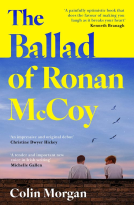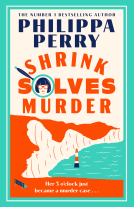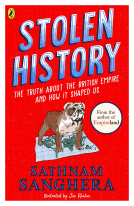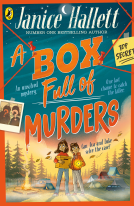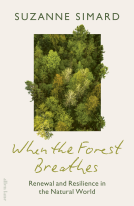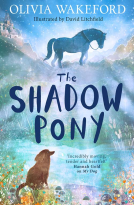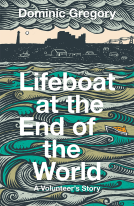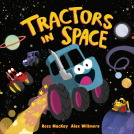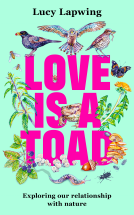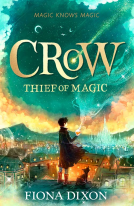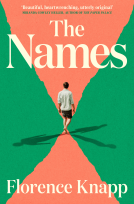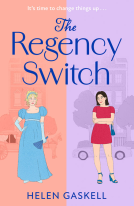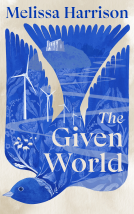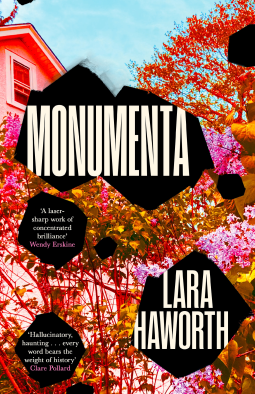
Monumenta
by Lara Haworth
This title was previously available on NetGalley and is now archived.
Send NetGalley books directly to your Kindle or Kindle app
1
To read on a Kindle or Kindle app, please add kindle@netgalley.com as an approved email address to receive files in your Amazon account. Click here for step-by-step instructions.
2
Also find your Kindle email address within your Amazon account, and enter it here.
Pub Date 4 Jul 2024 | Archive Date 4 Jul 2024
Talking about this book? Use #Monumenta #NetGalley. More hashtag tips!
Description
Olga Pavic’s house has been requisitioned.
The council will bulldoze it.
Her home will become a monument to a massacre.
But Olga cannot ascertain which massacre. Three different architects visit, each with a proposal to construct a different monument, to memorialise a different horror.
Olga can’t allow them to unearth the secrets held in this space, not until she reunites with her children for a final dinner. Her aspirational, distant daughter, Hilde, and her secretly queer son, Danilo, both reluctantly agree to fly back to Belgrade.
Within an atmosphere of razor-sharp political surreality, Lara Haworth spins a tender, magical story of familial love and loss. Via a panoply of perspectives Monumenta compellingly and playfully explores remembrance and how tragedy can be the catalyst for remarkable transformation.
Advance Praise
‘Absurdist and humane, this is a laser-sharp work of concentrated brilliance. Encompassing family and history, politics and love, Monumenta is surprising, original and so assured’
WENDY ERSKINE
‘A haunting read about all manner of love and loss, remembering and forgetting. I could not put it down’
KIRSTY WARK
‘Every image is charged with meaning; every word bears the weight of history. Hallucinatory, haunting . . . Lara Haworth is an important new voice in European literature’
CLARE POLLARD
‘A gem of genuine absurdism, and one that moves so unpredictably along its own structure, touching on – banging on, and knocking down – the fundamentals of buildings and trauma, family and love, reason and history, in a stunning, witty kick of literary brilliance’
HOLLY PESTER
‘Surreal, quirky, playful and serious . . . This slip of a book takes us to contemporary Belgrade and explores, with imagination and dark humour, how painful pasts are dealt with personally and publicly, asking questions about the roles of memorialisation, memory, erasure, transformation, grief and healing’
PRISCILLA MORRIS
‘Monumenta is . . . a very apt book, it fits right here, meaning now and I read it in one sitting. This is a party I’m glad I was invited to’
EILEEN MYLES
‘Full of fresh and witty descriptions, featuring incisively drawn characters, about personal and political memory, and how each wrestles with the other. About how the past nourishes yet also throttles the present. About the impossibility of escape from either one's history or one's destiny’
TIM PEARS
‘Monumenta is by turns a ghost story, a family drama, a sociopolitical satire – but it's also thrillingly original: a novel unlike any other I've ever read, peopled with characters I'll never forget’
NEIL D. A. STEWART
‘This slight book is a substantial achievement. Lara Haworth is an exciting new voice in literary fiction’
MATT ROWLAND HILL
‘Marvellous . . . [Lara Haworth's] prose is so swift, full of wisdom and wit’
SHARON THESEN
‘A knife-sharp debut that pulses with energy and originality. In a world both vividly humane and mesmerisingly carnivalesque, ideas burst forth in a blossoming of imagination’
KIARE LADNER
‘Monumenta makes even the impossibility of memory come to such life, with true visual pleasure. Subtle and thrilling’
MARCIA FARQUHAR
Available Editions
| EDITION | Hardcover |
| ISBN | 9781805301967 |
| PRICE | £12.99 (GBP) |
| PAGES | 144 |
Available on NetGalley
Average rating from 45 members
Featured Reviews
 Reviewer 1394760
Reviewer 1394760
Monumenta is a short novel but not a quick read, or rather I will put it this way: it is rich, complex and thought-provoking.
Which massacre? Whose perspective? Whose recollection?
Set in Belgrade, and extremely tender, surreal and curious, Monumenta is an awesome read.
If we exclude the political themes, it reminded me of The Hitchhiker’s Guide to the Galaxy, which kept me gripped, then of Octavia Butler’s, Marquez’s, and Rushdie’s work too.
I apologise in advance if I misjudged this in my first read, I will make sure to update this point after a second read or further contemplation, but despite some of the serious and tragic themes, I found an underlying witty tone at times. Especially in the dynamics between Olga and her children, And at times, the architect’s own ramblings.
4-4.5 stars.
Compact and complex.
 Graham F, Reviewer
Graham F, Reviewer
Monumenta is a short novel but both complex and cryptic. It is about monuments, memories, memorialising, massacres, mediums and mourning, about properties being requisitioned and about family homes.
The story opens with Olga – who lives alone (her husband Branko having died; her two children Hilde and Danilo living overseas) in her rather grand family home in Belgrade – receiving a City Municipality letter informing her that her home is being requisitioned for the building of a monument to a massacre – which massacre being very unclear. Three architects will be visiting on different days to pitch to the City officials their vision for the monument. After calling some of her friends she calls her children to insist they come home, for the first time in years, for a final dinner.
Much of the rest of the book traces the journeys and stories of the three architects and the two children – and their interactions with Olga (and in some cases each other).
Karl is visiting from Amsterdam – but mourning the break-up of his relationship he decides on landing in Belgrade to visit before the official date. His assumption is that the massacre is that including the King and Queen of Serbia in 1903 (Olga points out that as this lead to King Peter taking the throne that massacre was not particularly mourned) and his idea is to replace the house with an excavated crater.
Misha – an old acquaintance of Olga and something of a famous old Serbian architect would be favourite for the job but he is discombobulated both by a family of (possibly) refugees who appear to have commandeered his garden as their new home, and his own diminishing status with many of famous building being demolished. He proposes keeping the family home but encasing it in a fake shopping mall and believes the “massacre” to be that of the old Yugoslavia. He also has a discovery from his research – that unbeknownst to Olga (but it turns out later known to Branka) the house was itself requisitioned from another family (who had already had to get it back after Nazi seizure in WWII) and given to Olga and Branka in the 1970s.
Chara from London has a brilliantly complex answer to the “but where you are from, originally” question which is presumably prompted by mix race – it begins with Royalist and Catholic relatives transported to Barbados (and some others to Ghana) in the aftermath of the Civil War Battle of Naseby. Her idea is to commemorate the massacre of memory itself in favour of statuary and to gather all of the monuments in the City and house them in and around the requisitioned property.
Meanwhile Hilde (whose story at one stage moves to the second person mirroring the increasingly accusing voice in her head) – a hitherto successful construction CEO is focused on the potential repercussions of her own massacre – a group of workers buried alive on site just as Olga was calling her; and Danilio is haunted both by childhood memories that something unknown but dangerous is buried in the front garden and his misplaced fear that his mother will reject him if she knows of his sexuality (which feelings are exacerbated when he is highly attracted to the ageing Misha). And both are rather thrown by the mother’s eccentric behaviour, including stepping over what she believes to be the body of Branka on the kitchen floor.
And meanwhile some surreal visions – winger Hussars, a possibly phantom party – make it hard for us to tell what is real and what is imagined (or even if the difference really matters in a book whose focus is on memory) – and the book ends with the fourth family member making an inevitable appearance.
A very distinctive novel and one I would not be surprised to see on the Goldsmith Prize longlist.
Lara Haworth 's Monumenta is a wonderfully curious and thought-provoking novel.
Rather like watching a Wes Anderson or Jean-Pierre Jeunet movie, Monumenta challenges your initial perceptions and understandings; quirky and often with the feel of some type of hallucinogenic experience the reader is taken to Belgrade where Olga Pavić receives a letter to say her home is to be demolished in order to build a monument.
What the monument fully commemorates is never truly defined but it is to acknowledge a massacre- which /what one? ; however against the backdrop of Serbian and Yugoslavian history potential reasons for a monument are explored.
Olga calls her two children home to have one final meal - Danilo and Hilda. Both have different feelings about returning home. Three architects. are selected to create the potential design...and so follows a curious array of characters who emotionally are challenged by the circumstances and their own lives.
This is a clever novel that truly makes us reflect upon the purpose of statures, memorials , monuments... what do they truly tell us and what do they make us actually forget- the truth behind the image .
This a relevant and important novel especially in times where statues/memorials/ monuments erected in the past to celebrate colonialism /imperialism are sitting uncomfortably within communities/society today .
A short novella but with a big punch
Quote from the novel :
"The monument I am proposing is specific to Belgrade but in many ways could apply to any city in the world, because the massacre I wish to remember is the failure of memorialisation itself. The massacre of the memory in favour of statuary."
 Paul F, Reviewer
Paul F, Reviewer
‘There is a fine line,’ said Misha, ‘a very fine line. Between memorialisation and erasure.’
The debut novel by filmaker, political researcher, installation artist and author Lara Haworth, Monumenta is a highly original work, combining an off-beat tone, somewhat remiscent of a Helen Oyeyemi novel, with a profound meditation on the nature of memorials and monuments in both civic and family life - as Haworth has said:
"When I started to write Monumenta in 2020, everyone was fighting over monuments. This conflict and confusion runs through the novel, but on a smaller, domestic scale I wanted to show a family engaged in a similar struggle over their story, truth, secrets, and the past. At its heart, Monumenta asks if all family homes are in fact monuments to their own griefs, joys, sorrows and emotional massacres – and what these homes, these monuments, do to us when we live with them and when we let them go."
Set in Belgrade, the story centres around the family home of the widowed Olga Pavić who receives a letter from the City authorities, which, as she explains by phone to her daughter, living in Germany informs Olga that:
‘The house has been requisitioned by the city. Our house. The one where you grew up.’
Her daughter did not so much get on her nerves as make her nervous, like a child; somewhere along the line of her mothering the dynamic had been twisted, reversed. Her words came too fast, too desperate.
‘It is going to be turned into a monument. To the massacre.’ There was a long silence
[...]
She read the letter. Read it again. ‘What massacre?’ she said, eventually, to the empty house. ‘Which one?’
Three international architects are invited to propose exactly what massacre should be commerated and how. The first is taken aback by his first sight of the Western City Gate, and the taxi driver playing Turbofolk music:
"An enormous structure loomed into view: two tall, thin tower blocks connected by a space needle crowned by the blue letters ZEPTER. Such beautiful ugliness! How did they do it? They did it so well; he could never dream of something so ugly, but he would try; he would learn; all the fantastic complexity … like this music … what was it, it was terrible, it was wonderful, emotional, electronic, desperate …
You like this?’ shouted the taxi driver, holding Karl’s gaze in the rear-view mirror as he pushed his wraparound sunglasses up onto his head. Were his eyes filled with tears? Or was that the smoke from their cigarettes? Oh, dear man, tender soul. Tell me everything you know. ‘Yes,’ Karl shouted back, instead. ‘Yes!’ ‘This is our music. Turbofolk. It used to be associated with gangsters and nationalists. Now it provides a welcome release for the young, women and LGTBQ communities across the ex-Yugoslav diaspora. This is Nikolija. I love this song. “Plavo More”. Very good lyrics. I’ll translate.’ The taxi driver turned the volume even higher and started to sing, in English, two fingers raised, stabbing the air in time with the beat. ‘You’re inside me like a bullet in a gun barrel, everything is dark except for your dark eyes …’"
Although Olga's house, dating back to 1936 (and in the 1970s requestioned from the original family owners and given to Olga's family), gives off a very different vibe:
"Karl hesitated halfway up the concrete steps. He held on to the municipal steel handrail for support. Strange, the presence of this railing, out of place with the house, which he had seen in the photographs, but, looking up at it now–early twentieth-century, neoclassical Italianate style, limestone, three storeys, six free-standing Tuscan order columns planted evenly across its width, wooden canopy shouldering wisteria, wrought-iron balcony above the front door, first-floor parapet with balusters–it seemed to radiate a withering disappointment. In him, and in everything it had seen."
Olga summons both of her ex-pat children, each with their own hidden trauma, and her friends for a final party at her soon-to-be requestioned house, and her own vivid dreams reveal some of her own secrets.
In the meantime, each of the three architects has a very different proposal, the third drawing on the work of Milica Tomić and Aleksandra Domanović on the fascinating "turbo-culture" trend (which began with the aforementioed turbo-folk).
And this is all done in almost novella length.
See Gumble's Yard's review, which alerted me to the book, for more insights, and thanks to the published via Netgalley for the ARC.
 Jodie S, Reviewer
Jodie S, Reviewer
Thank you NetGalley and the publisher for the ARC.
I really enjoyed this short read. It does have a very European vibe to it in terms of writing style which I really enjoy.
This book gives a really good look at what we choose as a society to remember, whether that be a historical event, a tragedy or using monuments in a more artistic/social commentary way.
The contrast of those topics and the families own memories being tied to their house is really interesting as well, and the way that this is written is really imaginative. There's a lot of blending with the past and present.
This is a super quick read and covers a whole scope of concepts, I would recommend!
